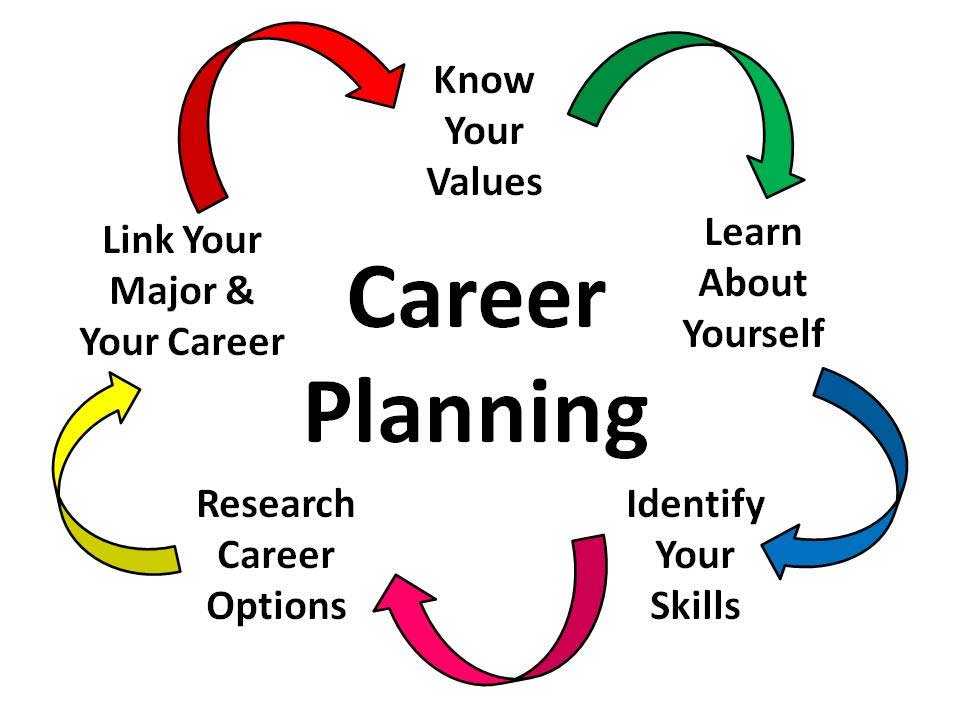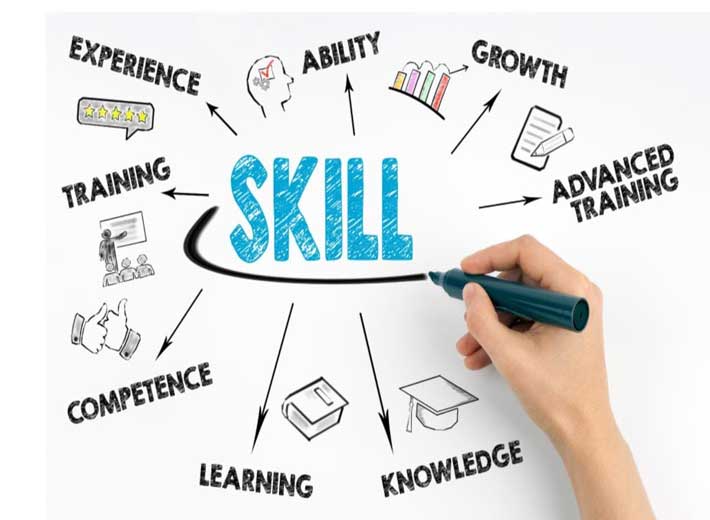Career Planning

Career planning is an individual′s lifelong process of establishing personal career objectives and acting in a manner intended to bring them about.
Are you not satisfied with the way your career is moving? Don't know in which way you should direct your career? Long past are the days of lifetime employment and now you need to plan careers as how to shift from one organization to another for gaining maximum industry experience. The task of career planning is quite a laborious one and it requires systematic planning of every step and a calculated execution. Take the onus of planning your own career.
Computer Skills

With technology becoming more and more prevalent in the workplace, it′s more important than ever to have basic computer skills. An employer will be looking for computer skills on your resume, and you need to be able to walk the walk in addition to talk to the

As we swiftly move towards paperless workspaces, every function requires at least some level of interaction with computers. Those with sharp skills in using computers get an edge over those who don′t when interviewing for the same profile.

Gain the skills and knowledge required to operate your computer and perform common tasks. Learn basic computer skills the smart way with Computer Basics training courses at CCE, the University of Sydney.
Interpersonal Skills
Interpersonal skills are the behaviors and tactics a person uses to interact with others effectively. In the business world, the term refers to an employee′s ability to work well with others. Interpersonal skills range from communication and listening to attitude and deportment.
Key Takeaway
Interpersonal skills are often referred to as social intelligence. They depend on reading the signals others send and interpreting them accurately in order to form a response.
Everyone has a personal style and an interpersonal style, but some are more successful than others. While interpersonal skills may be based in part on personality and instinct, they also can be developed.
Choosing a career is a big deal. It's about so much more than deciding what you will do to make a living. To start with, think about the amount of time we spend at work. We are on the job approximately 71% of every year. Over our lifetimes, this comes out to roughly 31 1/2 years out of the 45 years most of us spend working, from the beginning of our careers until retirement. The importance of selecting a career with which we are satisfied cannot be overemphasized.
Study Skills
Struggling to be a successful student? Don′t get discouraged, it isn′t magic! But it does require desire, dedication and a lot of work. If you want learn how to become a successful student, then you′ve come to the right place. Our study skills guides for students will provide you everything you need in order to learn how to learn more effectively.
The following are general study skills guides, tutorials and articles for students, parents and teachers that offer proven tips and strategies for improving study skills habits, effectiveness and learning ability. Topics covered include time management, learning style, note taking, reading, math, vocabulary, writing, and listening, among others.
Communication Skills

Whether we realise it or not, we are communicating all the time. And, given the number of platforms and devices that we use as we live out our daily lives, and the multi-tasking our routines call for, most of us are pretty good communicators.

Communication skills, tops the list of fundamental skills needed to succeed in the workplace. A decade-and-a-half later, with the rise of social media networking and texting, communication is becoming more casual.

Speaking or verbal communication is perhaps the most frequently used way to get a message across at the workplace, and it includes meetings, presentations, workshops, in-person interviews, and telephonic and video conferencing.
Leadership Skills
Leadership is an influence relationship among leaders and followers who intend real changes and reflect their mutual purpose. With this definition, we accept the following attributes of 'leadership'
The concept of leadership has been quite visible in areas such as military operations, politics, and management. Within work organization, leadership is no longer exclusively spontaneous or emergent. Leadership can be assigned as a part of the requirement of exclusive jobs of individuals, teams or it can be part of the expectations that members of a role set have from individual teams. Leadership as a managerial function is no longer limited to the top officers. To become a great leader, check out this business speaker.
There are the different types of leadership styles that exist in work environments and advantages and disadvantages exist in each leadership style. Some companies offer same leadership style while others follow different leadership styles depending upon what task to perform.
Guide and Best Practices
Career planning is the process by which HR professionals help their employees select career goals and identify the path to achieving them. The main goal of career planning is assisting employees to find a better match between their personal goals and the opportunities available in the organization.
How to create a career plan
Gather current documentation on career paths inside the organization and assessment requirements for each role.
If you do not have an org chart, create an Organizational Chart that has each role mapped to the hierarchy (Without names).
Draw out a career progression flowchart for each possible pathway, ideally from an entry level to the senior levels.
Share with other HR team members to get approvals on your visualization of the career paths.
Create a document on how to use an apply the career plan template inside your organization. Use it at annual review meetings or 1-1 career planning meetings.
Individuals can highlight their chosen path by creating a copy of the organizational template for their reference and for the reference of their manager.
Individuals can also use a personal SWOT analysis to help them evaluate their skills. Make use of your skill inventory to provide more employee information to assist them with their evaluation.
Create an organizational chart categorizing employees who need further training, who can take on more responsibilities etc. Color code each group for easy identification.
Embed the various diagrams created in your HR intranet or other internal websites so everyone can easily access the necessary documents.
Take the Career Test trusted by Companies, Universities, and Human Resource Departments around the world.
Instructions: Continue below. Answer all 43 questions as they pertain to you in a fulfilling work environment.
Interview Tips
Interviews are your chance to sell your skills and abilities.
They also give you a chance to find out if the job and company are right for you. Follow the tips here to ace your interviews.
Review common interview questions. Practice answering them with someone else or in front of a mirror. Come prepared with stories that relate to the skills that the employer wants, while emphasizing your:
Figure out in advance how well you qualify for the job. For each requirement listed in the job posting, write down your qualifications. This can show you if you lack a particular skill. Plan how you will address this in the interview so you can convince the interviewer that you can learn the skill.